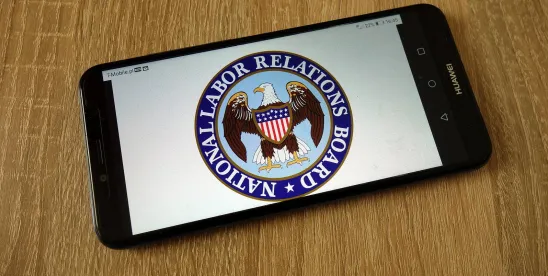The National Labor Relations Board (“NLRB”) is sharpening its focus on “salting”—the practice of union organizers seeking employment with non-union employers to facilitate organizing campaigns. On July 24, 2025, the NLRB’s Acting General Counsel (“AGC”) William Cowen issued updated guidance that both clarifies and intensifies scrutiny around salting cases, altering how these matters will be investigated and litigated.[1] Employers and HR professionals should take note of this evolving landscape.
What Is “Salting”?
“Salting” is a union organizing strategy in which union representatives or pro-union employees—known as “salts”—apply for employment with a non-union employer for the specific purpose of organizing the workforce from within.[2] Unlike typical job applicants, salts are motivated not only by an interest in employment but also a desire to advocate for union representation or to gather evidence of unfair labor practices.[3]
Salting can take several forms. Often, salts will conceal their union affiliation and present themselves as regular applicants. In other cases, salts may choose to openly disclose their union ties or organizing intent during the hiring process, which can test whether the employer unlawfully discriminates based on union affiliation. Additionally, in some campaigns, multiple union organizers submit applications at once as a coordinated effort to maximize the organizing impact or overwhelm the employer’s hiring process.[4]
Salting is protected under the NLRB, which prohibits employers from discriminating against applicants or employees because of union activities or sympathies. This tactic was most common in industries like construction, hospitality, and retail historically. However, in recent years, it has been increasingly common across a number of industries, some of which have not been prone to organizing, including technology, video games, transportation, cannabis, and fast food.
Employers facing salts must tread carefully during hiring and discipline, as adverse actions against salts can spur unfair labor practice charges or NLRB investigations, especially as the NLRB renews its focus on these cases.
Current Legal Standard: FES and Toering
Historically, all job applicants—including union salts—were protected against hiring discrimination under Section 2(3) of the National Labor Relations Act (the “Act”). However, the NLRB’s 2007 decision in Toering Electric Company and Foster Electric, 351 NLRB 225, created a key exception: union organizers are not protected if they lack a genuine interest in employment and are merely seeking to provoke or disrupt the employer.
In salting cases, the General Counsel bears the burden to “prove by a preponderance of the evidence that the individual in question was genuinely interested in seeking to establish an employment relationship with the employer.”[5] The key elements the General Counsel must demonstrate include:
- The employer was hiring or planning to hire at the relevant time;
- The applicants were qualified or the employer’s requirements were inconsistently or pretextually applied; and
- Antiunion animus contributed to the refusal to hire.[6]
The employer may then rebut the General Counsel’s showing by presenting evidence that it would not have hired the applicant(s) even in the absence of their union affiliation.[7] Examples include demonstrating disruptive behavior during the application process, submitting stale or incomplete applications, or refusal of similar recent employment.[8] If the employer raises a legitimate question regarding genuine intent, the burden shifts back to the General Counsel to prove by a preponderance of the evidence that the applicant had a bona fide interest in employment.[9]
What’s New: Acting GC Cowen’s Guidance
AGC Cowen’s July 2025 memo to Regional Directors urges NLRB investigators to “deeply probe” the motives and conduct of job applicants claiming discrimination, focusing on whether applicants were sincerely seeking employment or were solely acting as union salts.[10] The AGC issued updated case processing guidance for all Regional offices to follow when investigating refusal-to-hire or refusal-to-consider-for-hire cases in the salting context. Key aspects of this updated guidance include:
- Enhanced Investigations: Regions must obtain all applications materials, scrutinize the motivation for applying, and thoroughly explore the applicant’s interest in the job.[11]
- Evidence Gathering: Investigators should look for “red flags” in applications, such as antagonistic language, unusual employment gaps, or resumes highlighting union or organizing activities in a way inconsistent with sincere employment interest.[12]
- Mass Applications: For union campaigns that submit batches of applications, the Region should confirm that each applicant actually authorized their application.[13]
- Backpay and Remedies: Under Oil Capitol Sheet Metal, Inc.[14], backpay for salts is not presumed for an indefinite period. The GC must provide affirmative evidence on how long the salt would have remained employed.[15]
The AGC’s directive signals that regions should refer close or novel salting cases to the NLRB’s Division of Advice, potentially indicating that the NLRB may revisit or further refine policy in this area. Employers should expect more rigorous investigation and be prepared to respond to NLRB inquiries with detailed evidentiary support.
Takeaways for Employers
- Document behavior and application materials. Carefully record any disruptive, antagonistic, or insincere conduct during hiring processes.
- Uniform application of hiring standards. Enforce the same objective criteria for all applicants to strengthen defense against claims.
- Review application materials thoroughly. Note any inconsistencies, lack of genuine interest, or “red flag” statements.
- Prior union membership is not disqualifying. Simply working for a unionized employer or serving in a union role cannot, by itself, justify a refusal to hire. In fact, denying employment for that reason alone could give rise to an unfair labor practice charge. However, when prior union experience is combined with other factors, it may sometimes suggest that an applicant’s interest in the position is not genuine.
- Train managers and HR. Educate staff on how to identify and document behaviors or statements inconsistent with genuine interest in employment.
- Consult counsel when facing salting inquiries. Seek legal review when in doubt; it is increasingly important given the AGC’s new focus.
Bottom Line
The NLRB’s renewed focus on the sincerity of union organizers seeking employment—and its expectations for robust employer and agency documentation—place a premium on consistent, objective hiring practices and thorough documentation. Employers who encounter suspected salting should act thoughtfully, consult with experienced labor counsel, and ensure all employment decisions withstand close legal scrutiny.
FOOTNOTES
[1] NLRB, Memorandum GC 25-08, Guidance for Investigating Salting Cases (July 24, 2025)
[2] “Salting has been defined as ‘the act of a trade union in sending a union member or members to an unorganized jobsite to obtain employment and then organize the employees.’” Toering Electric Co. and Foster Electric, 351 NLRB 225, fn 3 (2007) (quoting Tualatin Electric, Inc. 312 NLRB 129, 130 fn. 3 (1993), enfd. 84 F.3d 1202, 1203 fn. 1 (9th Cir. 1996)).
[3] However, “a salting campaign’s immediate objective may not always be organizational, and the role of an individual ‘salt’ who applies for work may not always be to obtain employment.” Toering Electric Co., 351 NLRB at fn 3.
[4] “The fact that applications may be submitted in a batch is not, in and of itself, sufficient to destroy genuine applicant status, provided that the submitter of the batched applications has the requisite authorization from the individual applicants.” Id. at 233, fn 51.
[5] Id. at 233.
[6] Fes, A Div. of Thermo Power, 331 NLRB 9, 12 (2000)
[7] Toering Electric Co., 351 NLRB at 239.
[8] NLRB, Memorandum GC 25-08, Guidance for Investigating Salting Cases, 3 (July 24, 2025)
[9] Id.
[10] NLRB, Memorandum GC 25-08, Guidance for Investigating Salting Cases (July 24, 2025)
[11] NLRB, Memorandum GC 25-08, Guidance for Investigating Salting Cases, 3-4 (July 24, 2025)
[12] NLRB, Memorandum GC 25-08, Guidance for Investigating Salting Cases, 5 (July 24, 2025)
[13] NLRB, Memorandum GC 25-08, Guidance for Investigating Salting Cases, 4 (July 24, 2025)
[14] 349 NLRB 1348 (2007)
[15] NLRB, Memorandum GC 25-08, Guidance for Investigating Salting Cases, 6-7 (July 24, 2025)






 />i
/>i
